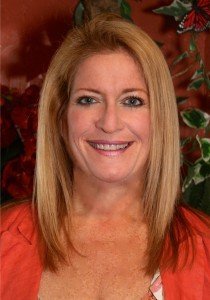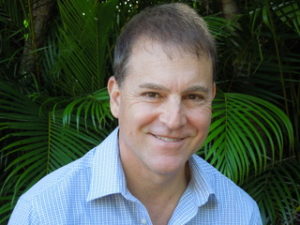We’re headed into summer and in South Florida we can already feel the temperature changing. Look, we all feel the heat, and top scientists predict it will get worse.
The 2018 National Climate Assessment — released by 13 agencies that are part of the Trump Administration — found that the Southeast U.S. is already experiencing more and longer summer heat waves. Experts say that by 2050, as global temperatures rise, the heat and humidity could make it feel like 105 degrees or even more as much as half of the year.
The medical community is sounding the alarm about the health risks associated with rising temperatures. It includes longer allergy seasons, mosquito-borne diseases as well as heat-related illnesses.

Since it’s getting hotter and our air conditioners are running longer and harder, that means we’re all using more electricity. That’s why at this time of year, Florida families will be hit with their highest power bills.
We all want to keep our home cool for ourselves and our families, yet we shouldn’t have to break the bank to do it. Wouldn’t it be great if we could set the thermostat at a more comfortable temperature and not increase our utility bill? Making improvements, sometime minor ones, can help you use energy smarter.
There’s actually an easy way to do it. In fact, the law requires it. The state’s biggest power companies are supposed to help you save energy but in reality, they don’t.
But there’s an opportunity and it only happens once every five years when the Florida Public Service Commission (PSC) — one of the most important agencies you’ve never heard of — sets conservation goals for the state’s largest utilities determining the scale of the programs the utilities will offer customers.

The PSC also sets rates for the states’ big power companies and approves the need for new power plants. Establishing meaningful conservation goals would help avoid the need to build new plants. The fact is, your bill goes up when the cost for a new power plant is added to it.
Protecting your wallet is only one of the reasons conserving energy is important. Reducing energy waste will also reduce the emissions from power plants that are threatening our quality of life.
Yet, Florida trails almost every state in the nation in capturing energy savings for customers through utility programs. Truth is, your utility should be working harder to help you save energy and money. Unfortunately, there’s a dangerous trend where power companies are walking away from their responsibility to help families reduce energy use and stop energy waste.
And while we all want a more comfortable home, it’s often the families that live month to month that are most at risk when they don’t get the information or financial resources they need to make smart investments in their homes. Measures as basic as sealing drafty windows, insulating attics, maintaining air-conditioning units and checking ducts to make sure they’re not leaking would go a long way to helping families keep more of their money.
This brings us back to the PSC, which gutted the state’s conservation goals in 2014 at the request of the utilities. This year, some of those same power companies have proposed goals for the next five years at zero or close to zero.
As a state, we can and should do better. The PSC should not allow big power companies to ignore the needs of customers. That’s why the Miami-Dade County Commission just passed a resolution calling on the PSC to set meaningful efficiency goals in the 2019 Florida Energy Conservation Act proceedings.
Cutting energy waste is also the cheapest, quickest and cleanest solution to reduce emissions and tackle the threats posed by the warming climate, such as sea-level rise.
State policy makers should be solidly behind cutting waste, allowing consumers to make their homes safely comfortable, while protecting our environment. It all starts with setting meaningful conservation goals this summer.
In Florida, where so many families are working hard just to get by, anything short of a full commitment by power companies to help customers reduce energy waste should be rejected by the Commission.
Susan Glickman is the Florida Director of Southern Alliance for Clean Energy and George Cavros is thePolicy Attorney for the alliance.
“The Invading Sea” is a collaboration of four South Florida media organizations — the South Florida Sun Sentinel, Miami Herald, Palm Beach Post and WLRN Public Media.




Comments 2